Product Overview
During your 2-day private tour, you will embark on an unforgettable journey to explore the wonders of ancient Egypt. The tour begins in Cairo, where you will marvel at the Giza Pyramids and Sphinx's grandeur and delve into the Egyptian Museum's captivating artefacts. You will then journey to Luxor, where you will witness the awe-inspiring Valley of the Kings, the majestic Hatshepsut Temple, and the magnificent Colossi of Memnon and Karnak Temples. Your adventure includes a comfortable domestic flight from your hotel to Cairo, another domestic flight to Luxor, and an overnight stay at a hotel in Cairo. After soaking in the splendours of Luxor, you will be transported back to your hotel. This immersive tour promises to leave you with lasting memories of Egypt's remarkable historical treasures.
What's Included
- Accommodation in Luxor
- All transfers by private air-conditioned vehicle
- One breakfast, two lunches
- Domestic flight ticket (Your hotel location/Cairo - Cairo/ Luxor)
- Pick up services from your hotel and return
- Private English-speaking guide
- Entrance fees to all the sights in Cairo and Luxor
- Bottled water on board the vehicle
- All service charges & taxes
What to Expect
Pick-up Service from your hotel

- On the day of your Cairo and Luxor tour, you'll be picked up from your hotel early in the morning to the airport. Next, you will fly to Cairo.
- Upon your arrival at Cairo Airport, you will meet with your guide who will accompany you in a private vehicle for a fantastic day discovering the monuments in Cairo and Giza.
Tour to Giza Pyramids
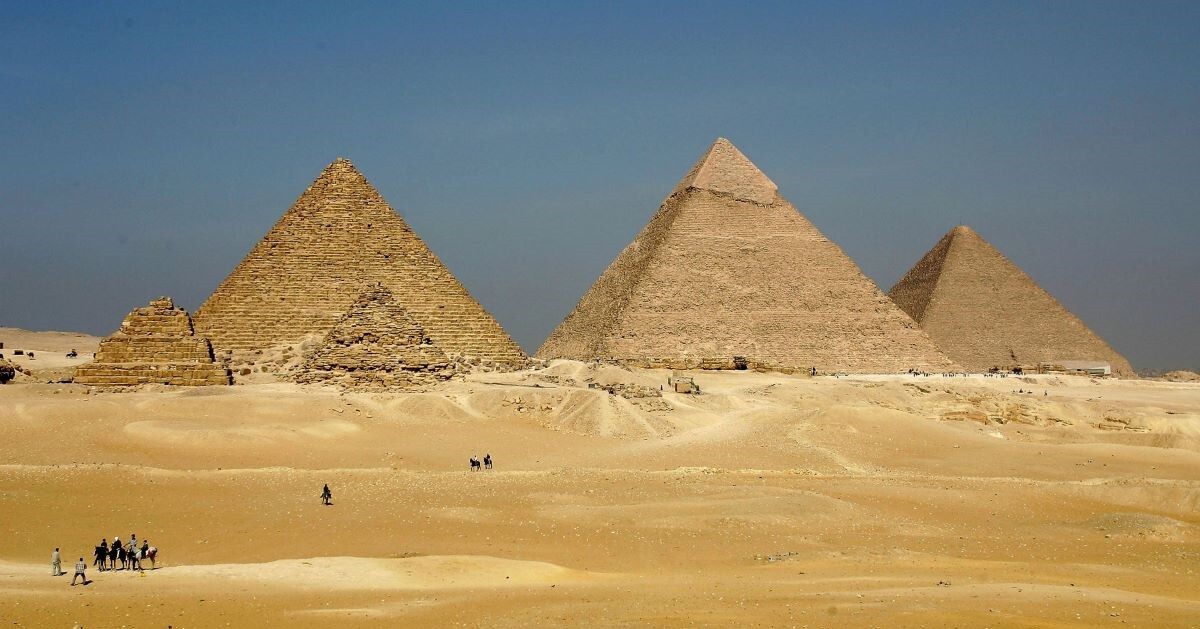
- When you visit the Pyramids of Giza, you'll have the opportunity to explore the extraordinary structures of Cheops, Chephren, and Mykerinus – the oldest of the Seven Wonders of the Ancient World. The Great Pyramid of Giza, also known as the Pyramid of Cheops, is believed to have been constructed as a tomb for the Egyptian Pharaoh Khufu around 2560 BC.
- Afterwards, you'll proceed to the Great Sphinx, a colossal statue with the head of a pharaoh and the body of a lion. This iconic monument is believed to date back to the time of Chephren and was built to guard the pyramids of King Chefren. Your next stop will be the Valley Temple, which served as a crucial location for the king's purification and mummification processes before burial.
Discover the Great Pyramid
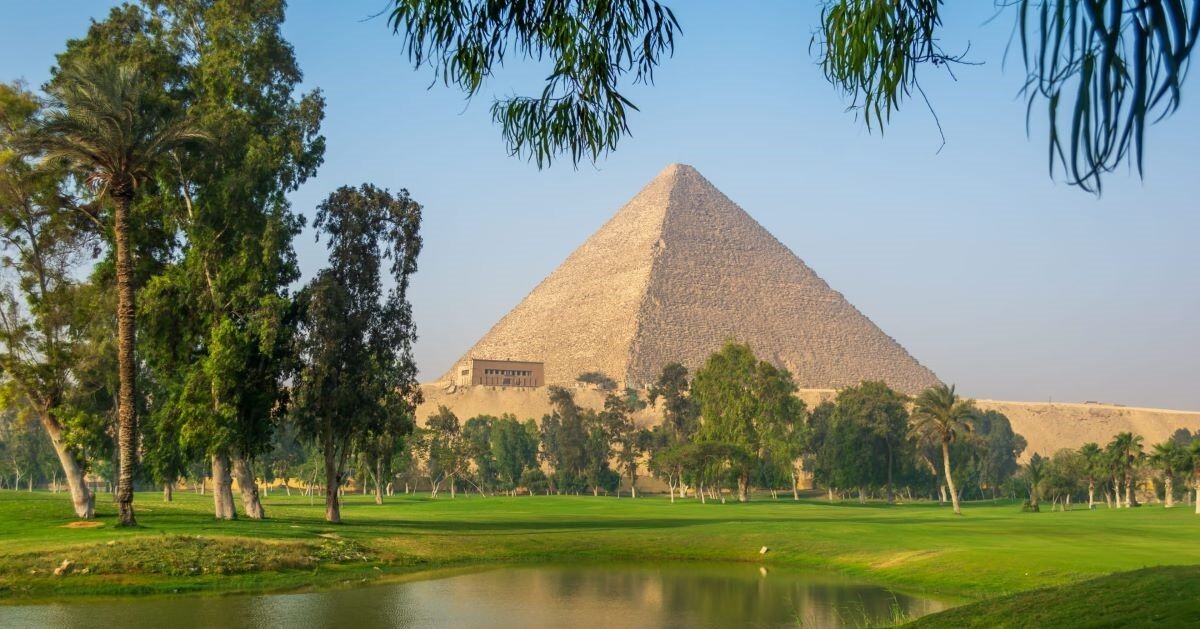
- Situated on the Giza Plateau, the Great Pyramid is a must-see landmark of ancient Egypt. The Great Pyramid, the tomb of King Khufu (c.2589–2566 BC), with its original height of 146.5 meters, was the tallest structure in the world for 3,800 years. It remains the last surviving member of the Seven Wonders of the Ancient World and took an estimated 10 to 20 years to build. To this day, it is not entirely certain how it was built.
- Additionally, the equally remarkable pyramids of Khafre and Menkaure can be found nearby. Adjacent to these structures are the more minor but significant queens' pyramids, which served as the tombs for Khufu's wives and sisters.
Admire the Pyramid of Menkaure
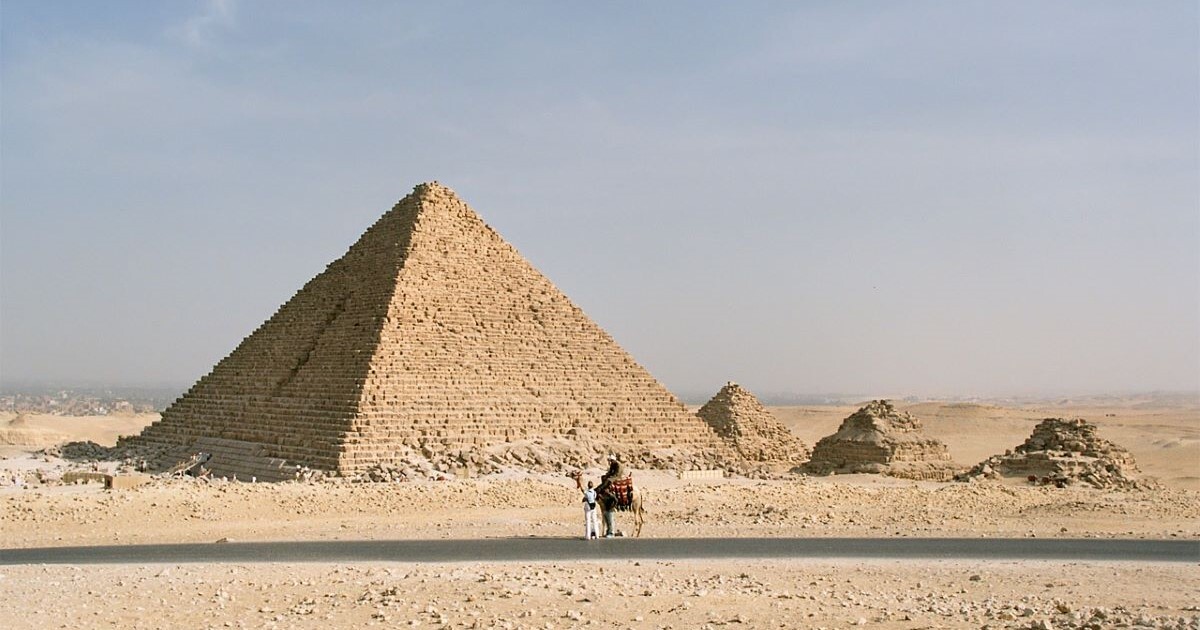
- Menkaure (Mykerinos to the ancient Greeks; c.2532–2503 BC) is the builder of the third of the three large Giza Pyramids. He was most likely the son of Khafre (Chefren) and grandson of Khufu (Cheops). With a base area that is less than a quarter of their pyramids’, and with an original height of 65 meters, Menkaure’s is by far the smallest of the three. This size reduction is due to several factors, including the limited amount of space left on the Giza Plateau. The material used for the outer casing of Menkaure’s pyramid is another. Whereas his predecessors had used limestone for this purpose, Menkaure employed granite, which was quarried in Aswan, over 800 km away. In addition to the logistics involved in the transportation of the granite blocks, the material itself is much harder than limestone. However, only the bottom quarter of the casing stones are made of granite, the rest being limestone.
Enjoy a panoramic view of the Pyramids
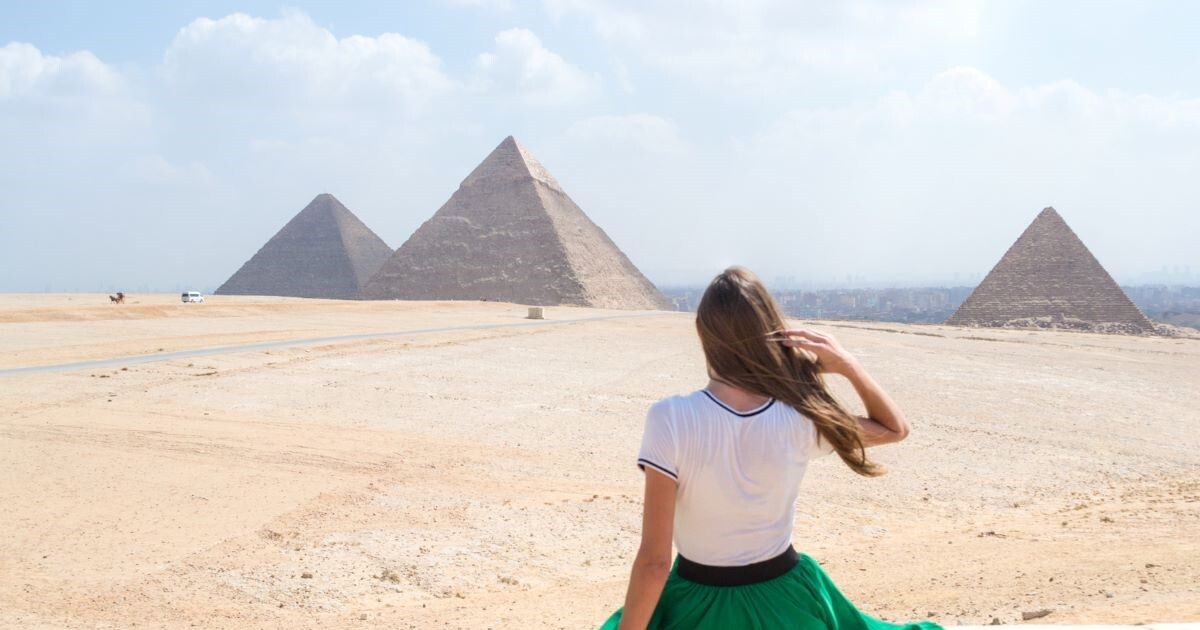
- Stop for a panoramic view of the pyramids.
Admire the Pyramid of Khafre
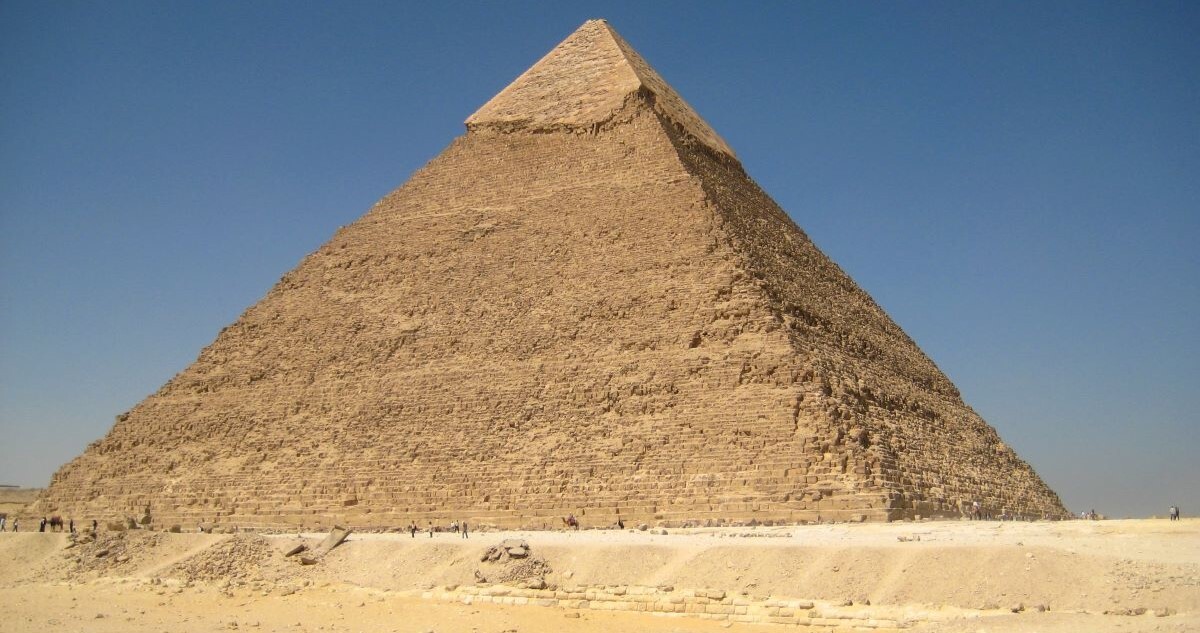
- Khafre Pyramid is the second largest pyramid in Egypt, only about 10 meters lower than the Great Pyramid. The pyramid is unique in that the remains of the original cladding have been preserved in its upper part. Khafre built his pyramid at Giza next to his father’s pyramid, his pyramid complex is better preserved than others, thanks in part to an innovative construction method using massive limestone blocks enclosed in a sheath of thin-facing slabs. The entire complex served as a temple for the resurrected god-pharaoh after his funeral.
Stand in front of the Great Sphinx of Giza
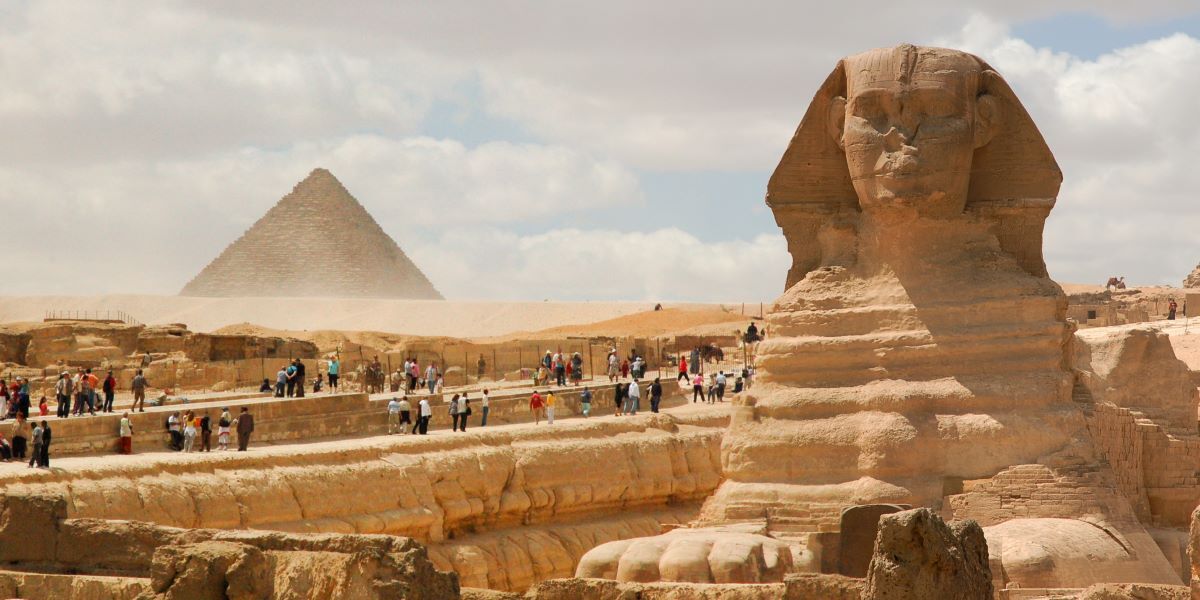
- Colossal statues are one of the hallmarks of ancient Egyptian civilization, and the Great Sphinx of Giza is the most famous. It was carved directly out of the bedrock during the 4th Dynasty (c.2613–2494 BC), which also makes it the oldest. Ancient Egyptian sphinxes represented the king with the body of a lion, in a clear demonstration of his power.
Discover the Valley Temple of Khafre

- The mortuary temple of Khafre at the foot of his pyramid and the valley temple at the end of the causeway are larger than any of those of older pyramids, and also among the best preserved of the Old Kingdom. Another development in the reign of Khafre is the complexity of their layout, with the elements constituting his mortuary temple becoming the new standard that its later Old Kingdom counterparts would follow. A unique feature of Khafre’s complex is the inclusion of a colossal statue beside his valley temple the Great Sphinx. The valley temple is made of massive limestone blocks encased in granite, floors made of alabaster, and its wide hall features monolithic granite pillars.
Lunch

- Enjoy lunch in a local restaurant in Cairo.
Tour to the Egyptian Museum
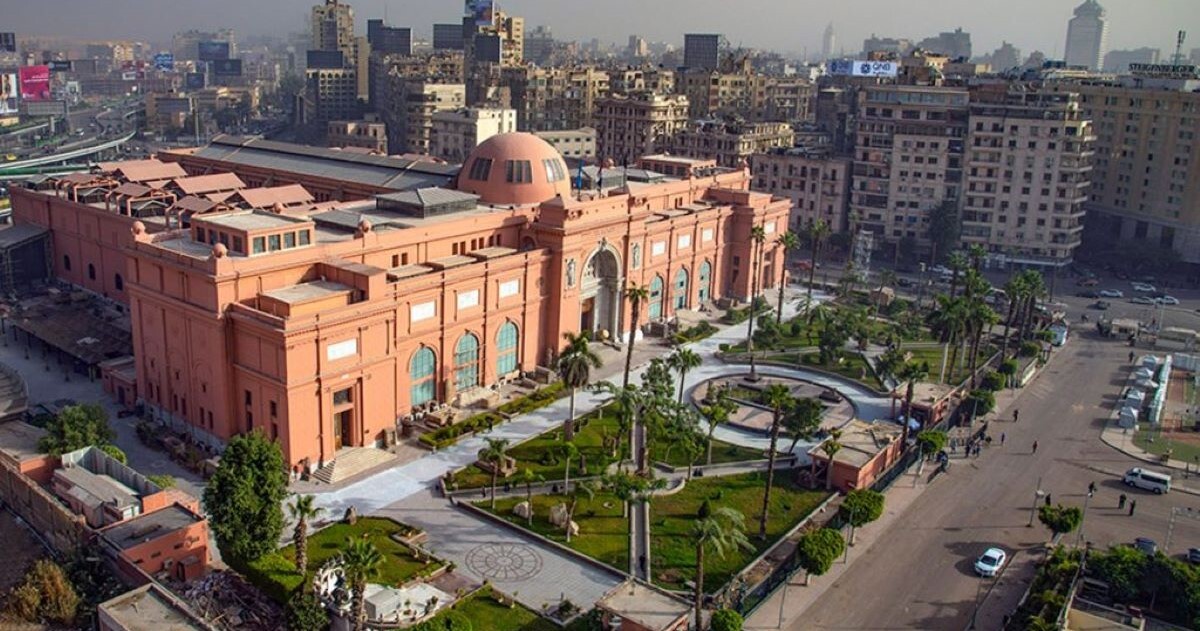
- The Museum of Egyptian Antiquities, also known as the Egyptian Museum, is home to the world's most extensive collection of Egyptian artefacts in Cairo, Egypt. While it holds roughly 120,000 artefacts, only a limited portion is currently on public display. The museum, housed in a building constructed in 1901, is the largest in Africa. One of its most celebrated treasures is the golden burial mask of Pharaoh Tutankhamun, renowned as one of the most iconic pieces of art globally and a lasting symbol of ancient Egypt.
Flight to Luxor
- You will head to Cairo Airport to catch your flight to Luxor.
Check-in Your Hotel in Luxor

- Upon arrival at Luxor Airport, your guide will pick you up from the airport to your hotel in Luxor, where you will check in and spend the night.
Tour to the Valley of the Kings
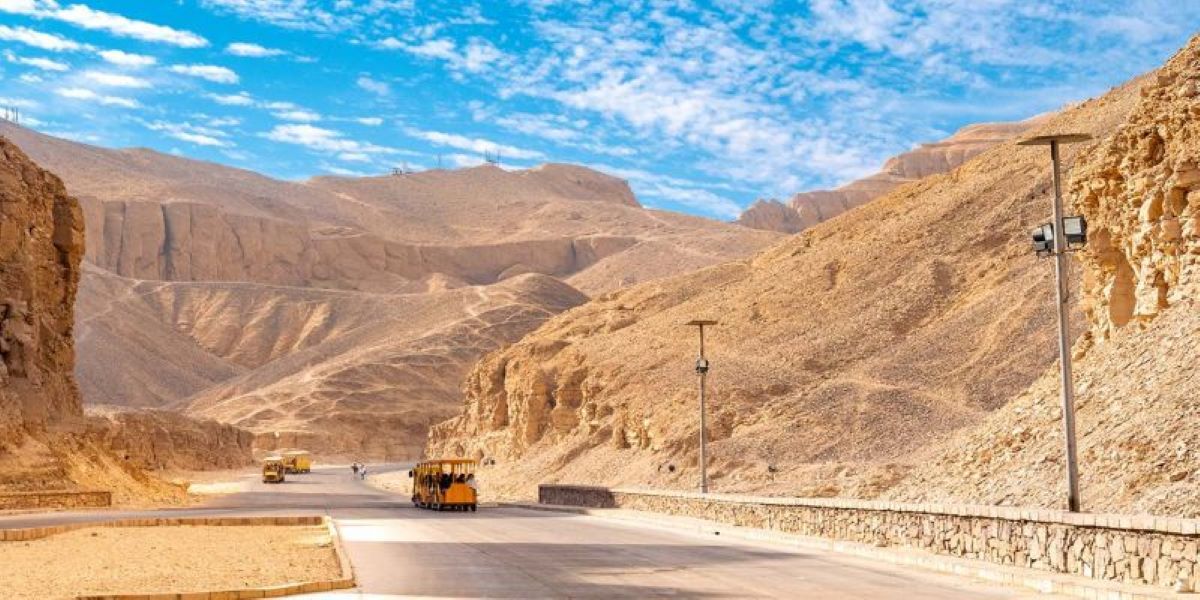
- On the second day of your Cairo and Luxor tour, you will start your day with breakfast and then proceed to check out. When you are ready, your guide will accompany you for a tour of the west bank of Luxor.
- The Valley of the Kings, also known as the Valley Of The Kings, is a magnificent site renowned for its grand architecture and as a burial ground for several kings. Notable tombs in this valley include King Tutmosis I, Tutmosis III, Tutankhamon, King Ramssess VI, King Merenptah, and Amonhotep II.
Tour to the Mortuary Temple of Hatshepsut
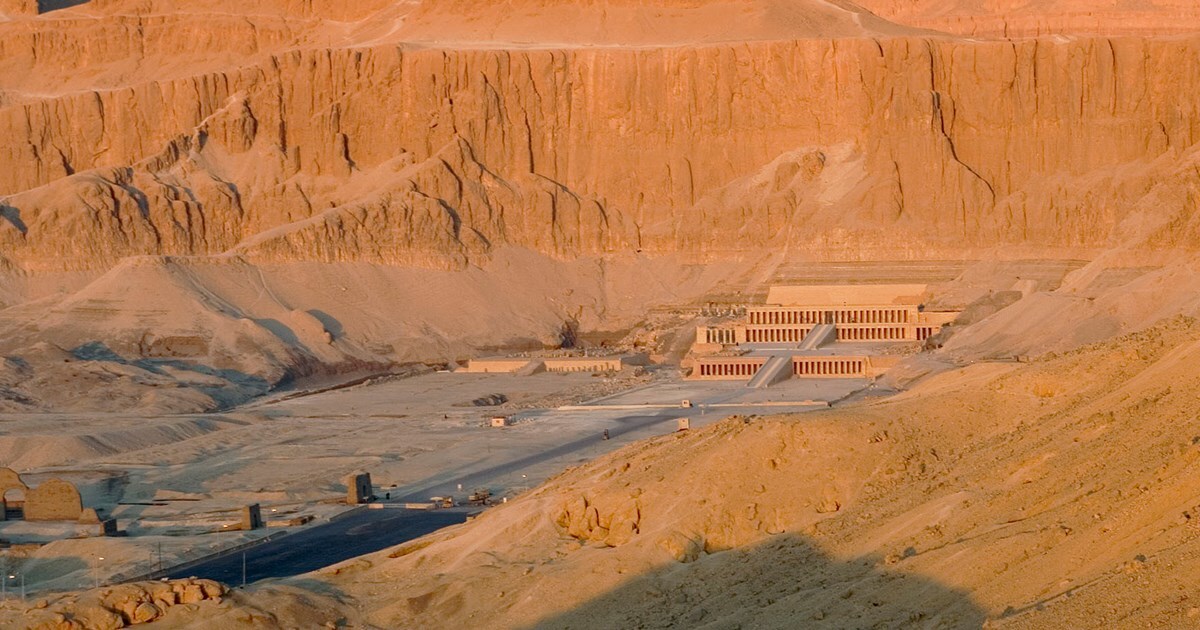
- The Temple of Queen Hatshepsut, also known as El Dir El Bahari, was built by Queen Hatshepsut, the daughter of Thutmosis I. She ruled Egypt for about 20 years during the 18th Dynasty (approximately 1490-1469 B.C.) and was the only Pharaonic woman to reign in ancient Egypt.
Tour to the Colossi of Memnon
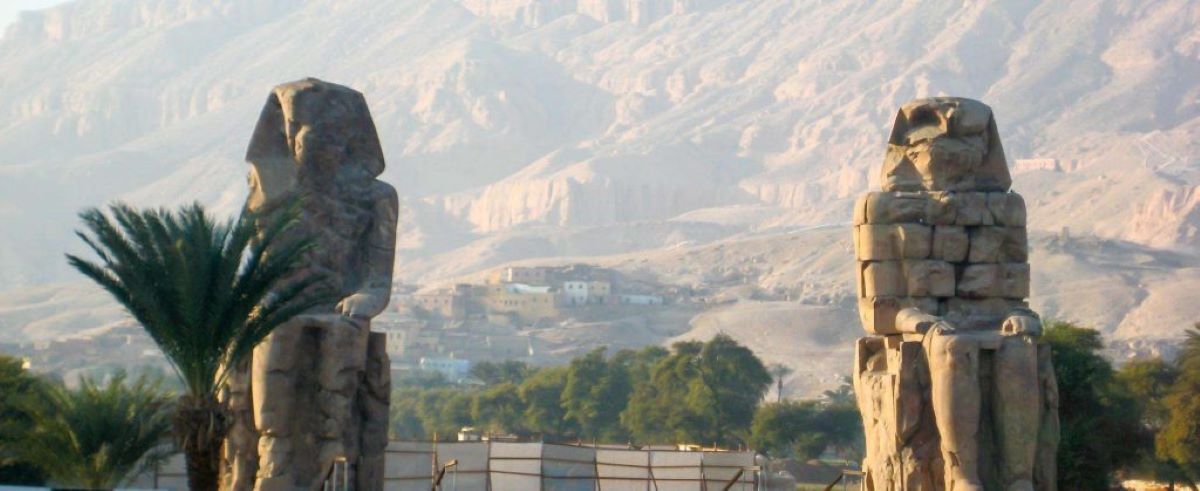
- The Colossi of Memnon are the remains of the mortuary temple of Amenhotep III.
Lunch
- Enjoy lunch in a local restaurant in Luxor.
Tour to Karnak Temple

- The Karnak Temple is a magnificent example of ancient worship dedicated to the God Amon, his wife Mut, and their son Khonsu.
Departure
- Back to your hotel.
Cairo and Luxor Private 2-Day Tour by Plane from Dahab
- Our representative will pick you up at 3:30 am from your hotel lobby. The flight trip will take approximately 45 minutes.
Cairo and Luxor Private 2-Day Tour by Plane from Sharm El-Sheikh
- Our representative will pick you up at 4:00 am from your hotel lobby. The flight trip will take approximately 45 minutes.
Cairo and Luxor Private 2-Day Tour by Plane from El Gouna
- Our representative will pick you up at 3:30 am from your hotel lobby. The flight trip will take approximately 45 minutes.
Cairo and Luxor Private 2-Day Tour by Plane from Hurghada
- Our representative will pick you up at 4:00 am from your hotel lobby. The flight trip will take approximately 45 minutes.
Cairo and Luxor Private 2-Day Tour by Plane from Sahl Hasheesh
- Our representative will pick you up at 3:30 am from your hotel lobby. The flight trip will take approximately 45 minutes.
Cairo and Luxor Private 2-Day Tour by Plane from Makadi Bay
- Our representative will pick you up at 3:30 am from your hotel lobby. The flight trip will take approximately 45 minutes.
Cairo and Luxor Private 2-Day Tour by Plane from Soma Bay
- Our representative will pick you up at 3:30 am from your hotel lobby. The flight trip will take approximately 45 minutes.
Cairo and Luxor Private 2-Day Tour by Plane from Safaga
- Our representative will pick you up at 03:30 am from your hotel lobby. The flight trip will take approximately 45 minutes.
Cairo and Luxor Private 2-Day Tour by Plane from El Quseir
- Our representative will pick you up at 3:00 am from your hotel lobby. The flight trip will take approximately 45 minutes.
Cairo and Luxor Private 2-Day Tour by Plane from Marsa Alam
- Our representative will pick you up at 2:00 am from your hotel lobby. The flight trip will take approximately 45 minutes.
Cairo and Luxor Private 2-Day Tour by Plane from Luxor
- Our representative will pick you up at 4:00 am from your hotel lobby. The flight trip will take approximately 45 minutes.
Cairo and Luxor Private 2-Day Tour by Plane from Aswan
- Our representative will pick you up at 4:00 am from your hotel lobby. The flight trip will take approximately 45 minutes.
Additional Programs and Tours that you can Book
While you are visiting Cairo and Luxor, you will have the chance to do more activities for an extra charge.
Grand Egyptian Museum
This mega museum in Giza will showcase Tutankhamun’s burial treasures for the first time, all at the same place, including 2,000 artefacts that have never been made public before. A visit to the Grand Egyptian Museum is a highlight of your Egypt tour.
The Grand Egyptian Museum is situated on 50 hectares (120 acres) of land approximately two kilometres from the Giza pyramids and is part of a new master plan for the plateau.
The building of the museum has a unique beauty. Although it will not rival the beauty of the Giza pyramids it looks like foldings in the desert sand. The Facade of the museum is geometrical in shape with alabaster stone. The museum is designed to line up with the Great Pyramid of Khufu and Menkaure.
The museum building is shaped like a chamfered triangle and while the front of the building has a translucent stone wall, it is the atrium inside that you will marvel at when you arrive.
The museum will house about 100,000 artefacts spanning a history of 7000 years of Egyptian history. With the latest technology in its halls.
One of the artefacts that has been recently transported to the museum is the thirty-foot-high granite statue of King Ramses II. The statue is more than three thousand years old and weighs about eighty-three tons. The statue was placed in a cage that was constructed specifically for the transport, and it was surrounded by a mounted military guard and a marching band for the journey. Once it arrived at the new Grand Egyptian Museum, it was placed inside the atrium where it will greet you every time you walk through the front doors.
While you are visiting this museum, you will be able to wander through exhibition galleries and watch a 3D movie within the cinema. It may be the ancillary buildings, restaurants, and shops that pique your interest the most after you have completed your exploration of history.
Virtual reality has also been incorporated into this new museum space, so every visitor will be able to incorporate the latest in technology during their visit. There is nothing better than feeling like you are being transported back in time as you are experiencing seeing these items for the first time.
What you will see, is the Hanging Obelisk Square in front of the museum, the atrium, the Children’s Museum, the Immersive Hall, the outdoor areas, and retail and food and beverage outlets, which include leading Egyptian brands.
Entry to the atrium will afford access to a selection of remarkable artefacts, including the colossus of Rameses II, the 10 Statues of Senusret, the Sakkara Cannon, the victory column of Meneptah, in addition to the Ptolemaic King and Queen statues.
All other museum interior spaces, including access to the main galleries and the two Tutankhamun galleries, will remain closed in preparation for the full site opening.
Pyramids Camel Ride
Experience the Great Pyramid of Giza, the only remaining ancient world wonder, at its most beautiful on this sunrise camel tour. With a private guide, climb atop your camel and enjoy a leisurely ride as the sun shines above the ancient structures. Get ready to capture the best photos.
Motorboat Nile Trip in Cairo
Enjoy the motorboat tour in the longest Nile in the world while enjoying the sights of Cairo from the water along with a cosy atmosphere. Enjoy refreshing breezes with a ride on the traditional Egyptian motorboat and the bewitching skyline of Cairo, while listening to some famous Egyptian songs. Soak up stellar views of Cairo’s towers, bridges and riverfront. Snap photos and make memories. It's a family-friendly cruise ideal for all ages.
Hot Air Balloon Ride
Hot air ballooning in Luxor, Egypt has a long and fascinating history. It began in the late 1700s when French aeronaut Jean-Pierre Blanchard took off from the city of Luxor for the first time. Since then, hot-air ballooning has become a popular activity for tourists visiting Luxor.
The experience of hot air ballooning in Luxor is truly unique. As you float over the ancient city, you can see the incredible monuments and temples that have stood for thousands of years. You can also take in stunning views of the Nile River and its surrounding landscapes. The experience is truly breathtaking and one that will stay with you forever.
The process of hot air ballooning in Luxor is relatively simple. First, you must book a flight with an experienced company that specializes in hot air balloon tours. These companies typically provide all necessary equipment and safety measures to ensure a safe flight. Once you have booked your flight, you will be taken to the launch site where your pilot will begin to fill up the balloon with hot air using a gas burner. Once filled up, it's time to take off!
As you ascend into the sky, your pilot will point out various landmarks and monuments below you as well as provide interesting facts about them. You can also enjoy spectacular views of the Nile River and its surrounding landscapes as you fly over them at an altitude of around 1,000 feet or more! Once your journey is complete, your pilot will land the balloon safely back at its launch site before returning you to your hotel or other destination in Luxor.
Hot air ballooning in Luxor is not only fun but also very safe due to strict safety regulations enforced by local authorities. All pilots must be certified by both local and international aviation authorities before they are allowed to fly passengers in their balloons over Luxor's skies. Furthermore, all balloons used for commercial flights must be inspected regularly by qualified personnel to ensure they are safe for use at all times.
In addition to safety regulations, certain environmental rules must be followed when flying hot air balloons over Luxor's skies such as avoiding certain areas where birds may be nesting or avoiding flying too close to historical sites or monuments due to their fragile nature. By following these rules, we can ensure that this wonderful activity remains available for future generations while still preserving our environment and cultural heritage sites for years to come!
Luxor Temple Tour
An ancient sanctuary surrounded by honking taxis, touts, and strolling families, Luxor Temple’s grandeur has endured more than 3,000 years on the East Bank of the Nile. Linked to Karnak Temple via the Avenue of Sphinxes, Luxor Temple boasts soaring colonnades, elaborate columns, statues, and images of Amenhotep III and Ramses II.
Medinet Habu Tour
On Luxor’s West Bank, Ramses III built his magnificent mortuary temple with intricate relief carvings and shrines. With its wonderfully preserved art, Medinet Habu represents the pharaoh's royal legacy and is among Luxor’s most important ancient sites. Images of hunting trips, prisoner executions, and battles with the Sea Peoples offer a window into ancient history.
You will also be able to visit some other temples inside Habu Temple such as the Temple of Amun dating to the 18th Dynasty, built by Queen Hatshepsut and Thutmose III. It has undergone many alterations and modifications over the years.
Motorboat Nile Trip in Luxor
Enjoy the motorboat tour in the longest Nile in the world while enjoying the sights of Luxor from the water along with a cosy atmosphere. Enjoy refreshing breezes with a ride on the traditional Egyptian motorboat and the bewitching skyline of Luxor, while listening to some famous Egyptian songs.
Soak up stellar views of Luxor Temple, Winter Palace Hotel and the riverfront. Snap photos and make memories. It's a family-friendly cruise ideal for all ages.
Watch the real Egyptian life pass by and enjoy the fantastic scenes that have not changed in millennia, the children playing in the water, the camels and donkeys, the farmers going about their work in the same ways they have done for centuries, and admire the water buffalo and a wide variety of birds.
The motorboat will sail to the Banana Island “a land covered with banana plantations”. The boat captain will berth the motorboat off the island and your guide will take you on a short exploratory tour of the island, where you’ll be offered a refreshing cup of traditional Egyptian tea and some of the sweetest, most delicious bananas you have ever tasted.






